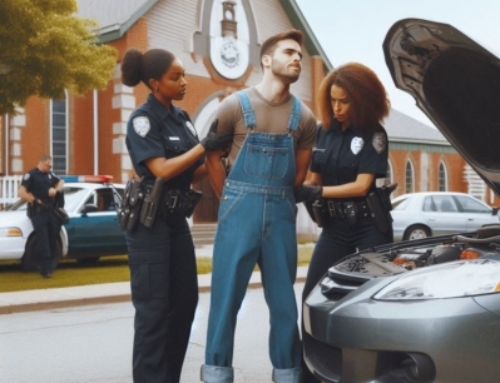Midgett Et Al V. Denver C.A.R.E.S. Et Al
Case Background
On July 03, 2019, a civil rights lawsuit was filed against Denver C.A.R.E.S for violating Fourteenth Amendment rights. The case was heard before the United States District Court, Colorado (Denver). The case was assigned to Judge Daniel D. Domenico and referred to Magistrate Judge N. Reid Neureiter. [Case number: 1:19cv1941]
Cause
Denver C.A.R.E.S. (Denver CARES) operated as a detention center while pretending to be a community behavioral health facility. Managed by the Denver Health and Hospital Authority (DHHA), it ran a community detoxification program claiming to offer “non-medical, clinically managed detoxification from alcohol and drugs in a clean and safe environment.” In practice, Denver CARES used this program to unlawfully detain individuals who were intoxicated without their consent. The facility aimed to profit from its detox program by using these detentions.
Under Colorado’s Emergency Commitment Statute, Sec. 27-81-111, C.R.S., only “protective custody” holds for intoxicated individuals who are a clear danger to themselves or others are lawful. However, Denver CARES detained individuals such as Leigh Ann Midgett, Matthew Loeslein, Kellie Koedel, Andrea Seith, and Benjamin Stecker solely for intoxication, lacking any evidence of dangerousness. Denver CARES’ detox admission policy allowed detention of anyone over 18 with a blood alcohol level (BAL) of “0.00 or greater, or with signs of acute intoxication from other drugs.” Once admitted, individuals could not leave until a Denver CARES employee discharged them. They had no control over their release time.
This case involves Denver CARES taking individuals—who committed no crimes and engaged in no illegal activities—into custody, seizing their personal belongings as if they were entering a correctional facility, and confining them in a locked room for hours. This resulted in false imprisonment at Denver CARES. All these actions followed Denver CARES’ policies and operational model and were motivated by profit. The plaintiffs’ situation was not unique, as many others have experienced similar mistreatment by Denver CARES due to its blatant disregard for the law.
Damages
Plaintiffs Leigh Ann Midgett, Matthew Loeslein, Kellie Koedel, Andrea Seith, and Benjamin Stecker sought the following judgments against the Defendants:
a. Nominal, compensatory, and punitive damages, with the amounts determined by the jury;
b. Reasonable attorneys’ fees, litigation expenses, expert witness fees, and the costs of the suit;
c. Interest, both statutory and moratory, as permitted by law;
d. An order prohibiting Denver CARES from detaining individuals in the future unless there is probable cause that they are significantly intoxicated and a danger to themselves or others.; and
e. Any additional relief that the court deemed just and appropriate.
Key Arguments and Proceedings
Legal Representation
- Plaintiff(s): Leigh Ann Midgett | Benjamin Stecker
- Counsel for Plaintiff(s): Bradley Aaron Levin | Gideon S. Irving | Robyn L. Clarke
- Defendant(s): Denver C.A.R.E.S.
- Counsel for Defendant(s): Laura M. Wassmuth | Elliott V. Hood | Mary Gwyneth Whalen
Claims
Claim One – Unlawful Seizure of Person in Violation of the Fourth and Fourteenth Amendments
At the time of their detention at Denver CARES, each Plaintiff had Fourth Amendment protection, extended by the Fourteenth Amendment, against detention without consent or probable cause of intoxication and danger. None of the Plaintiffs agreed to stay at Denver CARES; the staff physically prevented them from leaving.
Denver CARES failed to establish probable cause for detaining any Plaintiff, meaning there was no evidence that any Plaintiff was intoxicated or a threat to themselves or others. The facility’s policy did not require establishing probable cause and allowed detention based solely on the appearance of intoxication or a blood alcohol level of 0.00 or higher. This policy led to unreasonable detentions, violating the Fourth Amendment.
The policy at Denver CARES, which disregarded actual danger, was the primary reason for Plaintiffs’ detentions. Plaintiffs sought compensatory and punitive damages and an injunction against Denver CARES’ unlawful detention practices. Defendants Gabow, Vincent, and Dilag were held responsible for enforcing the inadequate policy, causing harm to the Plaintiffs. Additional Defendants also unlawfully detained Plaintiffs on specific occasions, leading to further claims for damages.
Claim Two – Violation of Substantive Due Process
Detaining individuals without their consent and without probable cause of intoxication or danger lacked a rational governmental purpose and was excessive. Colorado law permitted detention only for individuals who posed a clear danger, not merely for intoxication.
Denver CARES’ policy of detaining people regardless of their actual danger did not align with legitimate governmental interests and was excessively harsh. Plaintiffs sought compensatory and punitive damages from Denver CARES and the responsible Defendants for violating their substantive due process rights.
Defense
Defendants denied the allegations and claimed that Plaintiffs did not take reasonable steps to mitigate their damages. They argued that Plaintiffs were responsible for all or part of the damages. Defendants contended that their actions and the implementation of standardized practices were consistent with state law. Additionally, they asserted that the individual Defendants were protected by qualified immunity.
They argued that no Defendant, either through individual actions or in their official roles, enacted or enforced any guidelines, standards, policies, or practices that breached constitutional norms. Furthermore, Defendants claimed that all or some Plaintiffs had consented to their treatment and agreed to the payment terms.
Lastly, Defendants stated that Plaintiffs could not seek punitive damages against a municipal agency under 42 U.S.C. Sec. 1983.
Jury Verdict
On April 19, 2024, a nine-person Colorado jury found that Plaintiffs Leigh Ann Midgett and Benjamin Stecker had sufficiently proven their claims. The jury awarded the following compensatory damages to the Plaintiffs for deprivation of their Fourteenth Amendment rights at Denver CARES:
- Plaintiff Midgett: $280,000
- Plaintiff Stecker: $380,000
On April 24, 2024, Judge Daniel D. Domenico approved the final judgment and dismissed the case.
Court Documents:
Available upon request







Leave A Comment